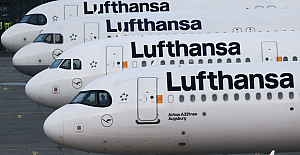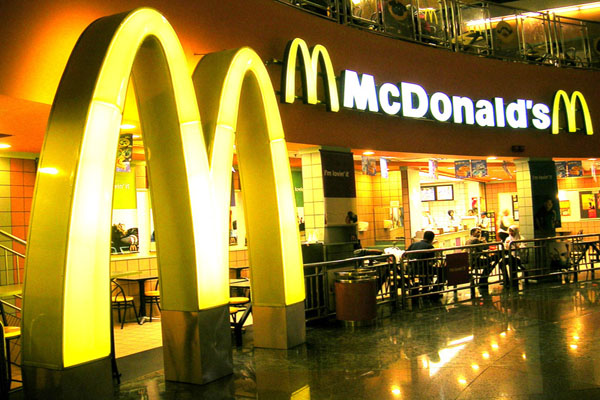The fast-food chain, the world's largest by revenue, has struggled for more than a year to significantly increase those monthly sales, hindered by slack demand and intense competition for the business of budget-conscious diners. November's biggest disappointment came from the United States, where monthly sales at restaurants open at least 13 months fell 0.8 percent, versus the 0.3 percent gain expected, on average, by 14 analysts polled by Consensus Metrix. "McDonald's U.S. trends imply a rare period of share losses," RBC Capital Markets analyst David Palmer said in a client note. Wall Street initially expected the chain's fortunes to turn this past spring because its results would be compared with weak monthly numbers starting in the spring of 2012. But McDonald's executives recently signaled that weakness would continue in the fourth quarter amid stiff competition and halting global economic growth. Chief Executive Don Thompson, at the helm of McDonald's for more than a year, has switched top management and shaken up menus to boost sales and profits. Still, analysts say the chain appears to be losing out to rivals at all meal times except breakfast - where it has long been a leader. Some analysts worry that the company's woes are the result of poor execution rather than external factors. In particular, they say, new menu items such as lattes, smoothies, salads and wraps have slowed McDonald's service in a business where hyper-competitive drive-thru times are measured in the seconds.
McDonald's latest move was to switch its value-oriented "Dollar Menu" to the "Dollar Menu & More" with slightly higher price points. U.S. diners' response to that should show up in the December sales results.
"McDonald's is still struggling more mightily than their Mighty Wings," said ITG research analyst Steve West, referring to diners' lackluster appetite for the company's new chicken wings.
McDonald's may have to boost promotions to improve sales, he said.
McDonald's, which has roughly seven times the sales of Wendy's Co (WEN.O) and Burger King Worldwide Inc (BKW.N) combined, has been slower than those rivals to tempt diners with limited-time specials and promotions.
Same-restaurant sales in Europe, which just edges out the United States as the top generator of revenue, rose a higher-than-expected 1.9 percent, with weakness in Germany more than offset by strength in the UK, France and Russia.
But declines in Japan weighed on comparable sales in the Asia Pacific, the Middle East and Africa region, which fell 2.3 percent. Analysts, on average, estimated a 0.7 percent decline. Sales in Japan have been weak for the past seven months.
Shares of the Oakbrook, Illinois-based company were down 1.1 percent $95.73 in midday trading.



 The candidates vying to be the next London mayor
The candidates vying to be the next London mayor Enfield Council commits to anti-racism and diversity pledge
Enfield Council commits to anti-racism and diversity pledge President Erdogan promised supporters his party would learn its lessons from the defeat
President Erdogan promised supporters his party would learn its lessons from the defeat Mayor of London and London Assembly elections
Mayor of London and London Assembly elections Off duty Police sergeant Eren Emin catch suspected thief while on stag do
Off duty Police sergeant Eren Emin catch suspected thief while on stag do A Century of Urban Transformation, Istanbul’s Evolution
A Century of Urban Transformation, Istanbul’s Evolution Future Painters Exhibition at Tottenham Hotspur Stadium
Future Painters Exhibition at Tottenham Hotspur Stadium Models of Teaching International Journalism for Sustainable Development
Models of Teaching International Journalism for Sustainable Development English Premier League leaders Arsenal will visit title contenders
English Premier League leaders Arsenal will visit title contenders Liverpool meet Atalanta and West Ham face Bayer Leverkusen
Liverpool meet Atalanta and West Ham face Bayer Leverkusen Arsenal face Bayern Munich and Manchester City play Real Madrid
Arsenal face Bayern Munich and Manchester City play Real Madrid UK Transfer deadline day, the transfer window closes tonight
UK Transfer deadline day, the transfer window closes tonight Petrol prices on UK forecourts hit 150p a litre
Petrol prices on UK forecourts hit 150p a litre Europe's travel strikes: Flight and train disruption you can expect in April
Europe's travel strikes: Flight and train disruption you can expect in April Enfield Council website achieves digital inclusion recognition
Enfield Council website achieves digital inclusion recognition Enfield Council’s Planning Enforcement team goes from strength to strength
Enfield Council’s Planning Enforcement team goes from strength to strength













